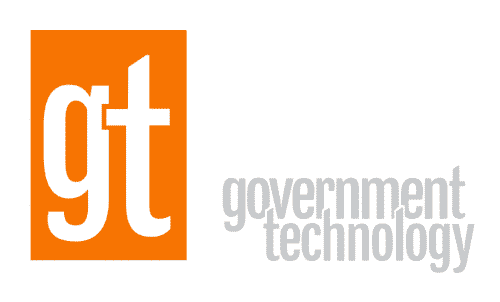April 8, 2024 7 min read

TMS vs LMS: Why A Police Training Management System Is The Right Pick
Industry:
Solution:

Think fast — do you know the difference between a training management system (TMS) and learning management system (LMS)?
Don’t worry if you aren’t sure. The terms have become more-or-less interchangeable in employee-education circles of late, and law enforcement agencies are hardly immune to the trend. While the difference of single letter in an acronym seems like it should hardly mean anything, there are quite a few differences between a TMS and an LMS.
The LMS/TMS matter is particularly important right now for law enforcement agencies. As a result of the flood of law enforcement-related legislation over the last few years, many agencies and academies have been required to make significant changes to their training programs, both in terms of the training that is required and to whom that training must be reported.
Unfortunately, the incorrect use of LMS as a catch-all term has become increasingly common, and the misconception has real potential to inflict needless cost and stress should an agency or academy adopt a solution that doesn’t offer the tools or functionality they need to be successful. A TMS offers a more powerful, capable, flexible solution, and it is a safe assumption that many agencies that think they need a traditional LMS are actually in the market for the training-based alternative.
Agencies planning to implement an LMS with no training component run a real risk of inadvertently hamstringing both training and learning. Just as “generic” software will never match the power and capability of solutions purpose-built for law enforcement, a solution that only handles learning fails to live up to the complexity of law enforcement training programs.
Learning vs. training management: What’s in a name?
Returning to the definition of learning vs. training, consider for a moment the tasks, procedures, and activities encompassed in each definition:
- Training can require budgeting, scheduling, need forecasting, retaining specialized trainers from outside the agency, scheduling specialists within the system, space reservations, mileage reimbursement, and countless other factors. Its outcomes may directly influence every activity the agency or academy undergoes, from mundane daily shiftwork to once-a-generation emergency response efforts, and its particulars tend to come under narrow regulation from state- or federal-level oversight, with many overseeing governments dictating annual peace officer standards and training (POST) curriculum down to the hour.
- Learning, meanwhile, is mostly up to the individual employee, occurring — again — as a byproduct of training content the agency provides. In very general terms, all an employee must do to learn is show up, pay attention, and engage with the course or module, with little or no need to be involved with the intense planning and coordination their supervisors undertook in ensuring they could get there with no gaps on the schedule.
Following this, it is fair to say learning is just another aspect of a competent training system, or perhaps a stop in a continuum. Unfortunately, it is also the point of the process most prone to catastrophic failure, considering the consequences an agency can face when its training endeavors fail to affect the desired level of learning in their officers. Today, costly settlements are just one undesirable outcome potentially following in the wake of every training failure; investigation and remediation from overseeing agencies, and intense scrutiny from peers, the public, and the media are a few more.
Although learning is universal to the training process, the topics, presentation formats, and budgetary limitations, can vary wildly, especially within law enforcement. One course may require stakeholders to inventory, track, and assign materials ranging from foam batons to practice-range firearms, while another may have officers view an online video and take a short quiz to test comprehension. Other types of training may require trainers to record range scores, lap times, or the number of sit-ups achieved in a set period. This variance is another reason a police training management system is best suited to the complex needs of law enforcement, rather than a traditional LMS.
What else does a TMS offer over an LMS?
A TMS unquestionably has more to offer law enforcement agencies in terms of raw utility. Powerful and flexible enough to support a broad number of administrative, clerical, and public-facing needs, a TMS allows for centralizing access and information, a feature that helps industry-leading tools automate complex tasks agencies could previously only entrust to humans. Consider the following use cases, which cover only a fraction of what a competent modern TMS can do:
- Education: Instructors and supervisors can use a TMS to design courses, create and store test scores (with or without automated score reporting), and other essential learning-related capabilities.
- Automated record-keeping: Once created, records can be centralized under the individual employee’s system profile for as long as the organization desires — the entirety of their career, if needed. These records may include automated test scores, hand-written observations from range events and other instructor-led courses, work performance evaluations, and more.
- Automated compliance: A TMS can be configured to the individual agency’s training compliance needs, with automated reminder emails going out to noncompliant individuals, their supervisors, and other parties on the chain of command.
- Smart scheduling: A TMS should also offer the ability to support scheduling and tracking in-person training sessions, in addition to providing the ability to distribute, track, and report on online law enforcement training.
- Housing and inventory management: While this may not be essential functionality for local departments, academies can greatly benefit from a TMS that offers features to manage cadet housing and inventory used for training. An academy-ready TMS handles both, plus numerous other law enforcement-specific needs, and integrates them all into the same tool that houses cadet training records and other vital data.
- Budgeting: Training budgets are an ever-pressing concern in the public sector, and a TMS can be an invaluable ally in bringing the stress they represent down to a bearable level. Because a TMS platform centralizes numerous types of data related to training, it can make it easy for the appropriate personnel to track training-related budgeting trends over time and make more informed predictions for the future.
The list above should illustrate, in worrying detail, the issues that agencies can face when they settle on a software solution that struggles to meet the complex needs of law enforcement training.
Centralize, modernize, and defend with a TMS
A hypothetical use-of-force lawsuit illustrates the benefits of utilizing a comprehensive policing training management system instead of either “generic” learning solutions or even manual, paper or spreadsheet-based processes. In the course of a lawsuit, the plaintiff’s counsel may request comprehensive training documents dating back to the officer’s first days on the job. A TMS can capture and store every educational record that officers generate over the course of their careers, supplemented with performance reviews, and any other training documentation the employing agency feels is worth keeping.
If the plaintiff calls into question the content of a specific training course, agencies can prove the precise content of the course, who took it, and what time/date the training transpired.
While litigation is an ever-powerful motivator for change, it is safe to say a TMS will provide an agency more than its money’s worth even if its officers never see the inside of a courtroom. In a field where it is almost impossible to overstate the potential impact of academy, FTO/PTO, and in-service training, learning is certainly a desired result — but managing, automating, and centralizing tasks key to the training process carry benefits that extend well outside the classroom. As such, agencies planning to incorporate a digital solution for training should be careful to consider whether the options they are considering will truly meet the full needs of their training programs.
For more on selecting the right TMS for your agency, download our buyer’s guide.
Download
Vector Solutions’ suite of industry-leading software solutions for law enforcement includes training management systems, online training courses, FTO/PTO/CTO/live skill evaluations, academy automation, and an early intervention and conduct management system.
To learn more about how Vector Solutions’ TMS can benefit your agency, please request a demo today.










